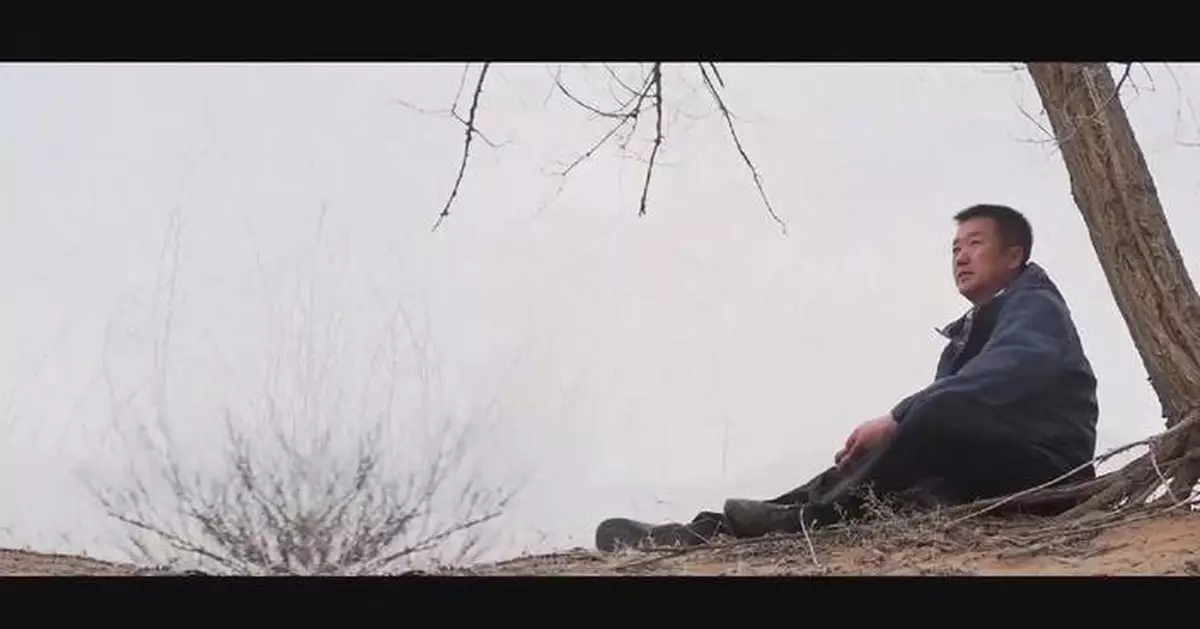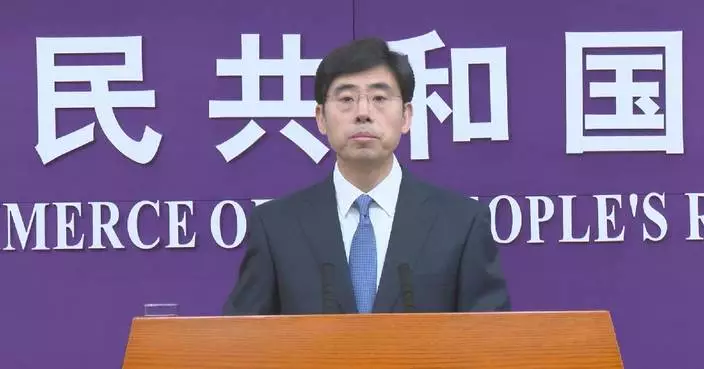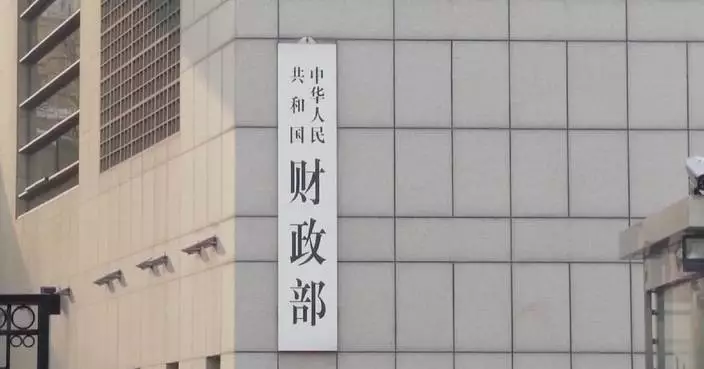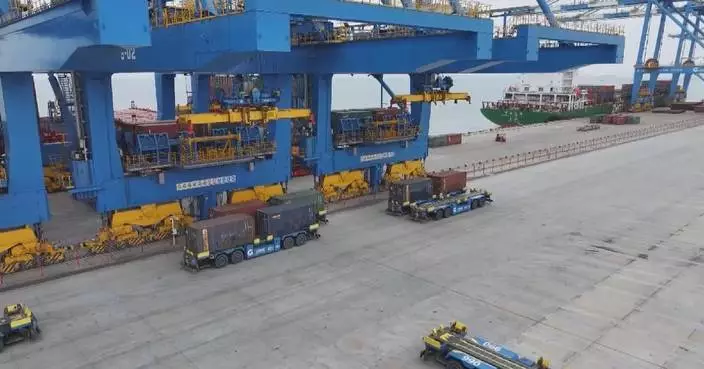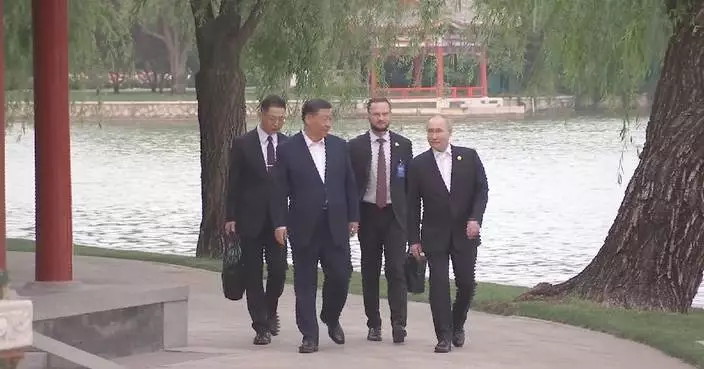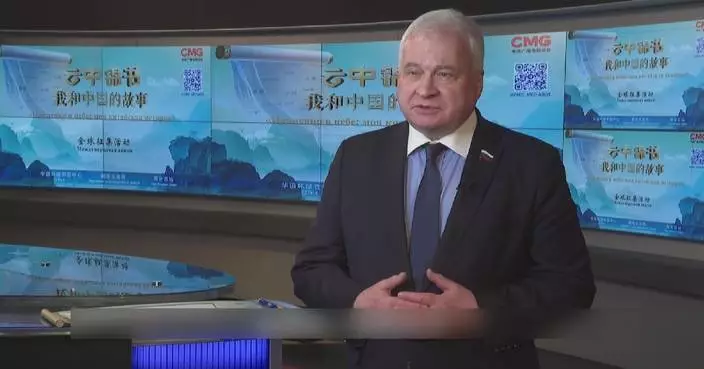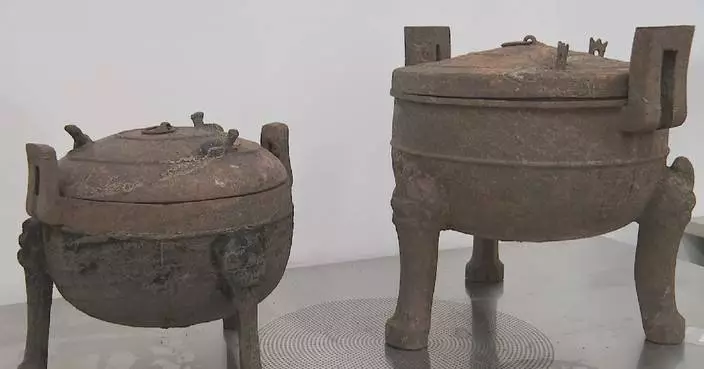The afforestation efforts in northwest China's Gansu Province has been carried on to the third generation, with young people born in the 1980s succeeding their heroic predecessors.
"My name is Guo Yi. I'm 39 years old. I am the third generation of tree planters in Babusha. I always played here when I was a kid, following my grandfather and father around. The tall trees you see in front, like the white elm, jujube and those larger trees, were planted by my grandfather. The smaller Chinese littleleaf peashrubs were planted by my father," said Guo.
Babusha is an enormous sand dune on the southern edge of the Tengger Desert, the fourth largest desert in the country, in Gulang County of northwestern China's Gansu Province. In Chinese, "Babusha" means "sand in eight steps." It is derived from a local saying describing the area's harsh climate -- the sand is only eight steps away from one's doorstep.
Forty years ago, Gulang County suffered greatly from the encroachment of the Tengger Desert, with the most severe area being the Babusha sand dune. In 1981, six farmers, including Guo's grandfather, courageously formed the Babusha Forest Farm, a collective initiative to combat desertification by afforesting the sandy lands. They fearlessly challenged the vast desert, initiating a long and challenging journey of desert control.
"When they were planted, those trees were just 0.5 centimeters in size as saplings. Now as you can see, after more than 40 years of growth, they have become towering giant trees," a tree planter of the first generation recalled the situation.
Despite being a pillar of the third generation now, Guo admits that he didn't fully understand his father's actions during his childhood.
Guo's father, Guo Wangang, was 31 years old when he resigned from his job at a local rural supply and marketing cooperative in 1983 to join the tree planting efforts, as his father (Guo's grandfather) fell ill and was no longer able to participate.
"At first I felt my father was quite foolish. While other families were planting wheat or potatoes, we were planting trees in our land. Planting trees didn't bring any income. We brought them into this desert and planted them here. At that time, it felt really foolish," said Guo.
However, Guo's perspective changed after he graduated and witnessed the lush greenery of Hangzhou City. A newfound desire to transform his hometown into a green paradise began to take root.
"Later, after I graduated, I went to Hangzhou and stayed there for about half a year. The first thing I noticed about Hangzhou was the abundance of trees covering the mountainside. Seeing all that green, I was instantly amazed. I thought to myself how wonderful it would be if my hometown could be so green. Then my father called me back, and I returned," said Guo.
Guo said his father's deep love for the land is another decisive factor to encourage him to succeed as the third generation.
"In my impression, my father is a particularly strong-willed person. He never talked about hardships or tiredness at home. He never spoke about those things with us. He always seemed distant and cold. One day, while he was talking to someone about the desert control work we were involved in, I was standing nearby. Suddenly, he burst into tears. I had never seen such emotions from him before. It deeply touched me at that moment, and it left a lasting impact on my heart," said Guo.
In August 2019, Chinese President Xi Jinping, who is also general secretary of the Communist Party of China Central Committee and chairman of the Central Military Commission, visited the Babusha forest farm.
As a leader who attaches great significance to environmental protection, Xi holds the efforts of Guo and his colleagues in high regard.
"You have set an example here, becoming the modern-day Yu Gong of our time. We should learn from you and strive to make our country and environment even more beautiful. Going forward, I hope you will continue to make great efforts, achieve new accomplishments, and take it to a higher level. Improve the afforestation work of Babusha and the areas you are protecting, passing on this legacy from generation to generation," said Xi.
Yu Gong is the protagonist of an ancient folktale. In the story, Yu Gong was determined to improve his family's living conditions by "removing" two mountains in the way to his home. The folktale is being told by generations of Chinese, and Yu Gong is now remembered as a symbol of strong will and unyielding determination.
In many ways, the work of Guo and his colleagues is similar to that of Yu Gong's, which is reshaping the landscape for a better life.
"I feel that General Secretary Xi is particularly concerned about the ecology. He pays special attention to desert control. When General Secretary Xi tried our work, I felt he is just one of our families. He was so kind and nice. He was very familiar with the process of sand control. At that time, it deeply touched me in the depth of my heart," said Guo.
General Secretary Xi once said young people are like the young trees thriving on earth that will eventually grow into towering trees to provide shelter for those in need. The young people are like the rising sun whose energy keeps on increasing as it climbs up the sky until the moment when it lights and warms up the earth.
As one young man born in the 1980s, Guo said this generation is known for resilience and fearlessness.
"I believe that the generation born in the 1980s has experienced hardships since childhood. They are not afraid of hardships and are willing to take risks and pursue their goals. Most importantly, they have a strong sense of patriotism and love for their country," said Guo.
As a member of the third generation, Guo embraced modern technology and innovated traditional tree planting methods using the Internet.
"At that time, I thought that if numerous young people could play virtual tree planting games on their phones, I can actually connect the last mile by planting trees in reality. Starting in 2019, using the Internet+ afforestation model, we managed to plant trees of 86,000 mu (about 5733 hectares)in just over two to three years. Sometimes, I jokingly tell my father that what I have achieved in three years is almost equivalent to what he had achieved in 40 years. Maybe our generation of young people has made a completely different outcome in forestation," said Guo.
After three generations' hard working over the past 40 years, the first six men and their descendants have successively completed sand control and afforestation of over 280,000 mu (about 18,667 hectares) of land, and the transition zone from the oasis to the desert has expanded by 30 km as a whole.
The oasis-desert transition zone is an ecological buffer zone between a mobile desert and an oasis, which is important in reducing the forward mobility of sand dunes and wind and sand hazards in an oasis.
"Now I still have a dream, and I am striving for it. That dream is to make the mountains of Gulang greener and the water clearer, ultimately improving the life of the local people," said Guo.

China's afforestation efforts: third generation continues fight against desertification


